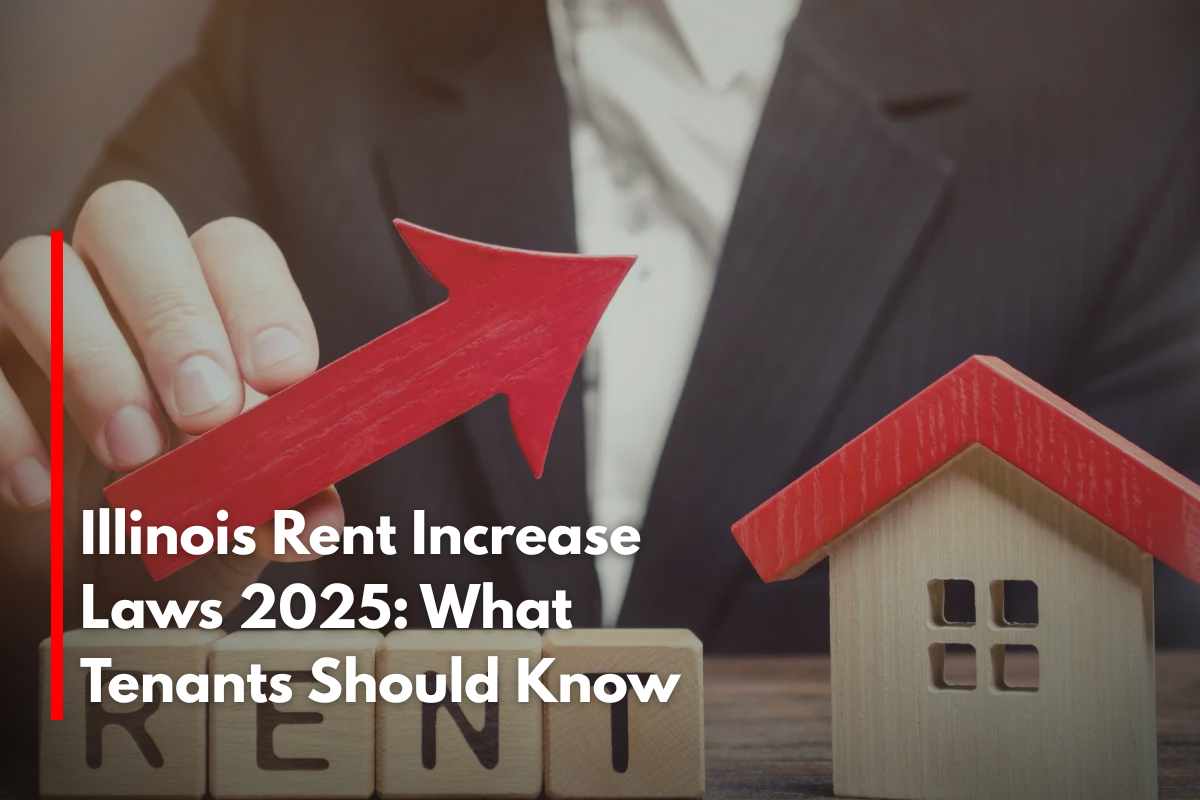Navigating rental laws in Illinois can be challenging, especially with recent changes in 2025. Whether you’re a tenant or a landlord, understanding your rights and obligations regarding rent increases is crucial. Here’s what you need to know about Illinois rent increase laws in 2025.
No Statewide Rent Control—But Local Changes May Be Coming
Illinois does not have statewide rent control. Landlords can generally raise rent by any amount at the end of a lease term, provided they follow notice requirements. However, new legislative efforts—such as the proposed “Let the People Lift the Ban Act” (HB3687)—could allow local governments to enact rent control if approved by voters, so tenants should watch for local ballot measures and ordinances that may impact their area in the near future.
Notice Requirements for Rent Increases
Landlords must provide tenants with written notice before increasing rent. The required notice period depends on the lease type:
Month-to-Month Lease: At least 30 days’ written notice
Leases Less Than 6 Months: 30 days’ notice
Leases More Than 6 Months but Less Than 3 Years: 60 days’ notice
Leases Over 3 Years: 120 days’ notice
The notice must specify the new rent amount, the effective date, and be signed by the landlord. If the landlord fails to provide proper notice, the rent increase may not be enforceable.
Rent Increases During a Lease
Landlords cannot increase rent during the term of a fixed lease unless both parties agree in writing. The rent set at the beginning of the lease remains in effect until the lease expires. For ongoing leases, only mutual written agreement can alter the rent before the term ends.
Protections Against Retaliatory Rent Increases
A major update in 2025 is the Landlord Retaliation Act, which protects tenants from retaliatory rent hikes. Landlords are prohibited from increasing rent, terminating a lease, or taking other adverse actions in response to tenants exercising their legal rights—such as reporting code violations or joining tenant organizations. If a landlord takes such action within one year of a tenant’s protected activity, it is presumed to be retaliatory, and the landlord must prove otherwise.
No Cap on Rent Increase Amounts—Yet
Currently, there is no cap on how much a landlord can raise rent in Illinois. Landlords may increase rent by any amount, provided they comply with notice requirements and do not act in retaliation. However, if proposed statewide or local rent control measures pass, this could change in the future.
Special Rules for Chicago and Other Cities
Some cities, like Chicago, have additional tenant protections. For example, Chicago’s Fair Notice Ordinance requires longer notice periods for rent increases and lease terminations. Always check local ordinances for additional requirements in your area.
Security Deposit and Payment Law Updates
Security Deposits: Landlords must return security deposits within 30-45 days of move-out, with an itemized list of deductions. For buildings with 25 or more units, annual interest must be paid on deposits held over six months.
Payment Options: As of 2025, landlords cannot require tenants to pay rent exclusively via electronic transfer; tenants must be allowed to use alternative payment methods.
What Tenants Should Do
Review your lease for specific terms about rent increases.
Watch for written notice and verify the notice period matches your lease type.
Know your rights regarding retaliation and local ordinances.
Seek legal advice or contact tenant advocacy groups if you believe your landlord has violated notice or retaliation laws.
Quick Reference Table
| Lease Type | Notice Required for Rent Increase | Cap on Increase | Retaliation Protections |
|---|---|---|---|
| Month-to-Month | 30 days | No cap | Yes |
| Lease < 6 months | 30 days | No cap | Yes |
| Lease 6 months–3 years | 60 days | No cap | Yes |
| Lease > 3 years | 120 days | No cap | Yes |
Illinois rental law in 2025 emphasizes transparency, notice, and protection against retaliation, but does not limit rent increase amounts unless new local rent control measures are adopted. Stay informed and proactive to protect your rights as a tenant.
Sources
[1] https://www.hemlane.com/resources/illinois-rent-control-laws/
[2] https://legiscan.com/IL/text/HB3687/id/3108399
[3] https://rentpost.com/resources/article/raise-rent-laws-in-illinois/
[4] https://www.ksnlaw.com/blog/2025-laws-impacting-illinois-landlords-rental-managers/
[5] https://www.clarkhill.com/news-events/news/recent-changes-to-illinois-real-estate-law-affecting-landlords-tenants-in-2025/











